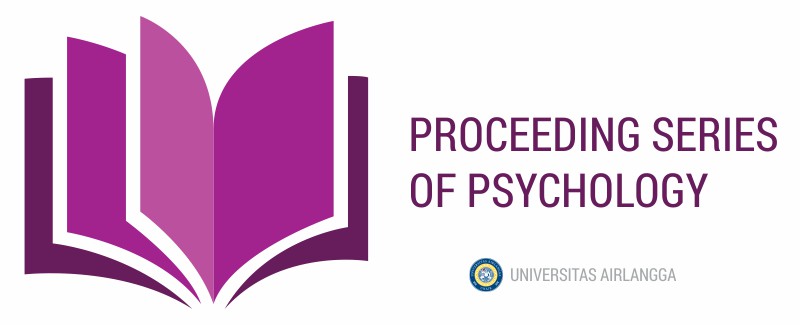Indonesian Workers Require “Diuwongke” to be engaged
Kata Kunci:
Diuwongke, Work Engagement, Agriculture EmployeeAbstrak
This research determines the impact of “diuwongke” on work engagement among plantation workers at an agriculture company in Indonesia. This is a quantitative correlational survey method with a cross-sectional design. 368 plantation workers voluntarily participated in this study who worked on several areasin North Sumatra, Indonesia. The instruments used to collect the data consist of Utrecht Work Engagement Scale (UWES) and “Diuwongke” Scale. While work engagement describes as employees’ positive psychological state toward their job, diuwongke is a local indigenous concept of Indonesia, developed by Rahmadani & Schaufeli (2022). A simple regression method with IBM SPSS Statistic Ver.25 was performed to analyze the data. The findings indicate that there is a positive and significant relationship between “diuwongke” and work engagement (r= 0.449, p < 0.05), moreover, “diuwongke” contributed to explaining 20.1% of the variance in work engagement. To summarize, the higher the level of “diuwongke” perceived by the plantation workers, the stronger their work engagement. This study emphasizes the importance of good relationships between leaders and followers in a country with a high power distance national culture. Leaders, who have power and authority, play a key role in creating leaders-followers positive work relationships through how they treat their followers.
Referensi
Bakker, A. B., Scahufeli, W. B., Leiter, M. P. & Taris, T. W., 2008. Work Engagement: An emerging concept in occupational health psychology. An International Journal of Work, Health & Organisations, XXII(3), pp. 187-200.
Brislin, R. W., 1970. Back-Translation for Cross-Cultural Research. Journal of Cross-Cultural Psychology, I(3), pp. 185-116.
Chanana, N. & Sangeeta, 2020. Employee engagement practices during COVID-19 lockdown. Journal Public Affairs, XXI(4), pp. 1-8.
Cropanzano, R. & Wright, T. A., 2000. A 5-year study of change in the relationship between well-being and job performance. Consulting Psychology Journal, LI(4), pp. 252-265.
Harter, J. K., Schmidt, F. L. & Hayes, T. L., 2002. Business-Unit-Level Relationship Between Employee Satisfaction, Employee Engagement, and Business Outcomes: A Meta-Analysis. Journal of Applied Psychology, LXXXVII(2), pp. 268-279.
Hasibuan, R. P. P. M. & Ashari, A., 2020. Optimasi Peran Negara Menghadapi Pandemi Corona Virus Disease 2019 dalam Perspektif Hukum Tata Negara Darurat. Jurnal Sosial & Budaya Syar-i, VII(7), p. 582.
Irawati, S. A. & Anisa, N., 2022. Efektivitas Peraturan Bupati No.5o Tahun 2020 Tentang Penerapan Displin Dan Penegakan Hukun Protokol Kesehatan Sebagai Upaya Pencegahan Dan Pengendalian Corona Covid 19 Di Kabupaten Jayapura. Jurnal Pengabdian Masyarakat, II(1), p. 214.
Marciano, P. (2010). Carrots and sticks don’t work: Build a culture of employee engagement with the principles of RESPECT. New York: McGraw-Hill.
Margaretha, M. & Saragih, S., 2008. Employee engagement: Efforts to improve organizational performance. Surabaya, The second national conference UKWMS .
Mungkasa, O., 2020. Bekerja dari Rumah (Working From Home/WFH): Menuju Tatanan Baru Era Pandemi COVID 19. The Indonesian Journal of Develompment, IV(2), pp. 126-150.
Rahmadani, V. G. & Schaufeli, W. B., 2020. Engaging leadership and work engagement as moderated by “diuwongke”: an Indonesian study. The International Journal of Human Resource Management, III(7), pp. 1-29.
Schaufeli, W. B., Bakker, A. B. & Salanova, M., 2006. The Measurement of Work Engagement With a Short Questionnaire A Cross-National Study. Educational and Psychological Measurement, LXVI(4), pp. 701-716.
World Health Organization, 2020. WHO Western Pacific. [Online]
Available at: https://www.who.int/westernpacific/emergencies/covid-19/
[Accessed 2 November 2022].
Unduhan
Diterbitkan
Terbitan
Bagian
Lisensi
Hak Cipta (c) 2024 Vivi Gusrini Rahmadani, Nurul Machfiroh, Mega Maahiroh, Rahma Fauzia, Ridhoi Meilona

Artikel ini berlisensiCreative Commons Attribution-ShareAlike 4.0 International License.


